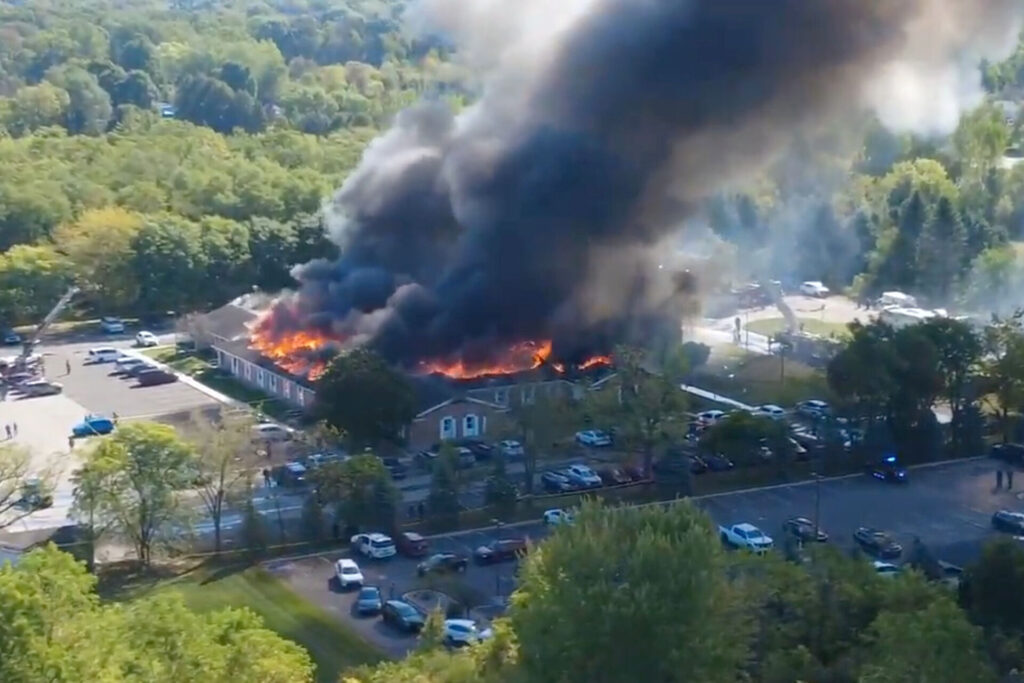Arbitration the latest front on curbing construction-defects lawsuits
Mandatory arbitration for construction defects in condos and townhomes passed a Senate committee Monday. Senate Bill 156 is the latest in a piecemeal approach to throttling litigation that proponents say blocks construction of affordable housing.
The Senate Business, Labor and Technology Committee passed the arbitration bill 5-2. Democratic Sen. Cheri Jahn of Wheat Ridge joined the committee’s Republicans to support it.
The legislation is likely to pass the Republican-led Senate, then have a more difficult path past the Democratic majority in the House. Republicans have argued that the bill is good for business, while Democrats say consumers would lose legal rights.
Legislation efforts to restrict litigation against developers, builders and contractors has died in each of the last three sessions.
The bill, one of four related to construction defects this session, would also require a majority vote from members of a homeowners association to file a lawsuit, instead of a decision by an HOA board.
As Denver’s metro region deals with soaring prices for new homes, construction of more affordable town homes and condos lags behind.The lack of affordable condos and townhomes forces would-be homebuyers into costly apartments, proponents argued Monday.
Builders say the cost of insurance against getting their pants sued off over construction defects is too much, given the low profit-margin for affordable housing. That means those homes don’t get built in favor of apartment buildings, expensive condos or stand-alone homes.
Seventeen cities across Colorado, including Denver, along with all of Douglas County, have adopted lawsuit limits, citing the needs of young families and low-wage earners for condominiums and townhomes they can afford to buy.
“If we just do it there, we don’t get the critical mass we need in an insurance pool to make it more broadly available across the state of Colorado,” said Sen Owen Hill, R-Colorado Springs, who is sponsoring Senate Bill 156.
He offered an example about the cost to individuals who are renting instead of buying. He said that five years ago Coloradans were paying $925 a month in rent, on average, for an apartment. For that amount each month a person could have paid a mortgage on a condo worth about $172,000.
Today rent for a two-bedroom averages $1,770, while Hill projected the value of the condo today at as much as $274,000.
Supporters of the bill characterized its aim as helping first-time homebuyers, working families and the state economy. Opponents said the advantage goes to corporate lawyers and shoddy builders.
Opponents also contend the bill is the latest attempt to extend one-sided protections to builders without any guarantee that limiting people’s ability to sue would result in construction of affordable housing.
State Sen. Mike Merrifield, D-Colorado Springs, said builders of expensive condos could shield themselves from lawsuits by taking advantage of a law meant to help builders of more affordable properties.
Hill replied, “Nothing guarantees they’re affordable, but I can tell you right now we’re guaranteed not to have any affordable condos; our policy has driven out all affordable condo ownership right now.”
Ed Shackelford, representing the Colorado Senior Lobby, said the way the bill is written it was clearly intended to help builders, not homeowners.
While the bill calls for a majority of homeowners to decide on allowing a construction defects lawsuit, it says the original documents in the contract could override that.
He said the arbitration process is inherently biased toward the side that most often enters arbitration and will again, which would be builders in nearly every case.
And by going to arbitration, builders would not have a substantive court record that would alert other buyers, he said.
“If you’re going to do arbitration, you really need to ensure it’s a fair process,” Shackelford said. “And it is not a fair process now. This bill does not get into that issue.”
Tom Clark, CEO of the Metro Denver Economic Development Corp., told the committee Colorado is facing a disaster by relying on apartments for working-class people instead of purchased homes.
“We’re building the state of Colorado’s next tenements,” he said. “We’re doing it in Denver and small towns and large cities along the Front Range and even in Durango.’
He said the courts are “strangling the liberties of young people, the elderly, the poor and the soon-to-be retired.”
Suzanne Leff, a lawyer who represents community associations, said the bill stacks the deck against homeowners.
“Homeowners should understand that construction is a complex process andf will not result in a perfect product every time,” she said. “But homeowners should be able to expect to have homes that are constructed in a manner that’s consistent with good workmanship.
“Senate Bill 156 would eliminate this reasonable expectation and severely disrupt the fairness that the Colorado Common Interest Ownership Act is intended to provide for homeowners, developers and the associations that serve the communities. This would be a great detriment to homeowners in particular.”
She said community association’s would have to disclose information in arbitration, without anything in return from developers or builders, weakening the ability of homeowners to get a fair settlement if a case went to court.
“The balance is just way off kilter with Senate Bill 156,” she said.
The other construction defects bills introduced so far this session are:
Senate Bill 45 mirrors a portion of the bill heard Monday. It would require a majority of homeowners in an association to approve a lawsuit before it moves forward and address equitably dividing litigation defense costs.
Senate Bill 155 would define “construction defect” in state law as one that causes personal injury or the loss of use of real or personal property, which opponents say is too broad and creates loopholes for builders.
House Bill 1169 would clarify that a developer has the right to inspect the property and decide to repair the defect or settle before the association files a lawsuit.
*****************
Correction: This blog initially got the number of municipalities wrong. Douglas County is not a municipality. Apologies.











